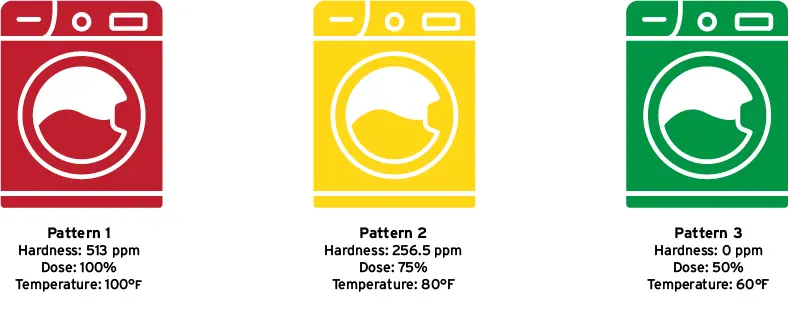Why Hard Water Wreaks Havoc With Your Laundry
(And How To Fix It)
If you’ve noticed your clothes and towels don’t look and feel as good as they should when you pull them out of the washer or dryer, you’re not alone. Hard water causes a number of unpleasant and potentially damaging issues with laundry, and if you are experiencing any of the issues below we’ve got some good news for you.
- Laundry grays or yellows easily
- Fabric is stiff instead of fluffy and soft
- Clothes are weakened, tear easily
- White and/or grey streaks appear on colored clothes
Why Hard Water Doesn’t Play Nice With Laundry
The main issue with hard water and laundry is that detergents don’t mix with water when the water contains a high mineral count. The higher the mineral count, the harder the water and the bigger the impact on laundry.
Hard water prevents water and detergents from mixing effectively. Calcium minerals in hard water bond with soap, and create a curd that sticks to the fabric fibers which is unable to completely rinse out. Over time, this causes your clothes to draw in more dirt, white clothes begin to turn grey or yellow, and colored clothes may show white or grey streaks.
This buildup is also what makes laundry feel stiff, and the excess friction causes undue wear-and-tear on your laundry.
Often times homeowners begin using even more detergent and/or hotter water, and at the end of the year they’ve spent more on detergent, higher bills, and replaced damaged and/or worn clothing!
Laundry Study
A study conducted by the Battelle Memorial Institute and Water Quality Association proves the ineffectiveness of washing laundry in hard water, shining light on the benefits of a water softener.
The study tested three different water hardness levels, detergent doses, and water temperature, and the results were fascinating.
- Observation 1: Stain removal increases dramatically when hardness is removed, even when the detergent dosage level and water temperature are also lowered.
- Observation 2: When water of any hardness level is softened prior to its use in washing, the detergent can be reduced by 50 percent and the water temperature can be reduced to 60°F (from 100°F) and still achieve the same or better stain removal, yielding brighter clothes. Conversely, reduction of hardness is significantly more effective than increasing temperatures or detergent dose.
- Observation 3: Softened water requires less detergent and saves energy by lowering water temperatures while maintaining or improving wash quality.
These results were true for all stain types and eight different detergents tested, and verified for top-load and high-efficiency front-loading washers.
Fixing The Problem With A Water Softener
If you suspect you may have hard water, send a message through our Contact Form or give us a call and we’ll come test the water for you at no cost. You could also perform the simple home test to see if you have hard water.
To perform the simple home test, fill a clear container with water, add approximately 10 drops of soap into the container, and shake vigorously. If your container has a good amount of suds at the top and the water below is clear, your water hardness is low.
On the other hand if your water is cloudy and there aren’t many suds, you have a hard water problem.
Contact Us Today!




